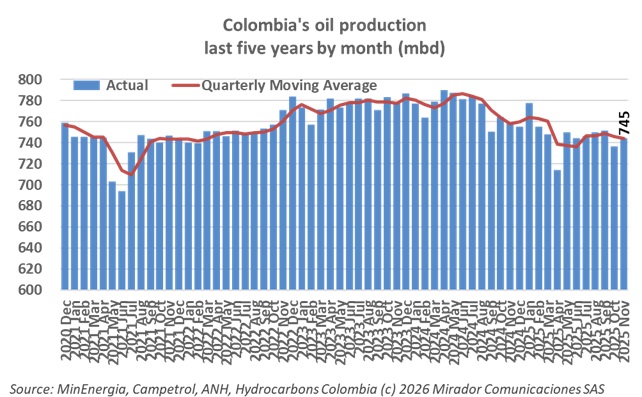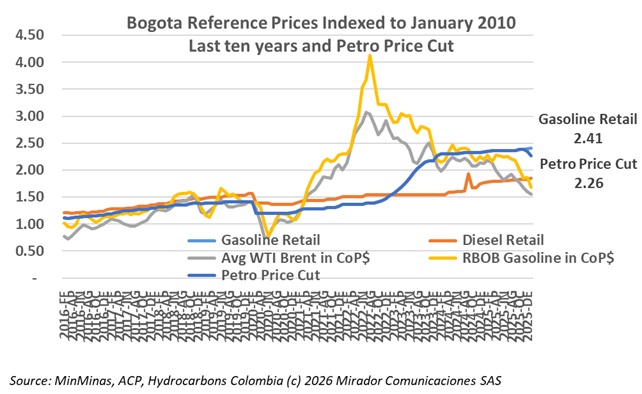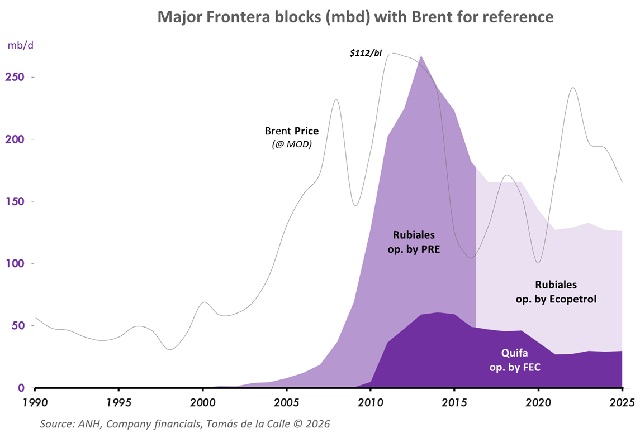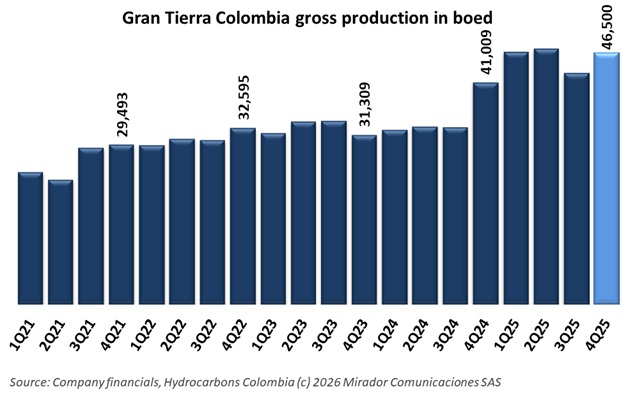
Tuesday, February 10th, 2026
Colombia’s oil production declined 3.6% year-over-year through November 2025, averaging 744,645 barrels per day compared to 774,180 bpd in the same period of 2024, according to the ANH.




Energy Minister Edwin Palma signed a resolution making effective a CoP$500 per gallon gasoline price reduction beginning February 1, 2026, while maintaining stable diesel prices.
GeoPark, led by President Felipe Bayón, renewed its crude oil purchase agreement with Vitol and extended the contract term covering production from Llanos basin blocks in Colombia. The new agreement stipulates that GeoPark will sell and deliver all crude production from Llanos 34, Llanos 123, and CPO-5 blocks to Vitol, with the expiration extended from June 2027 to December 2028.
Transportadora de Gas Internacional (TGI), a subsidiary of Grupo Energía Bogotá, and Hocol, a Grupo Ecopetrol subsidiary operating the Guajira Association, signed a Connection Agreement enabling TGI’s La Guajira Regasification Plant project to supply up to 250 million cubic feet per day (MPCD) of natural gas to Colombia’s national system
French oil and gas company Maurel & Prom (M&P) announced plans to initiate a six-well exploration campaign at Colombia’s Sinú-9 gas field in February 2026 using a platform currently under assembly and mobilization.

Colombian industry consultant and HCC contributor Tomás de la Calle was struck by the Geopark / Frontera transaction and inspired to write this historical reflection.

Gran Tierra (GTE) published a press release with a 4Q25 operations report and some unaudited 2025 numbers.